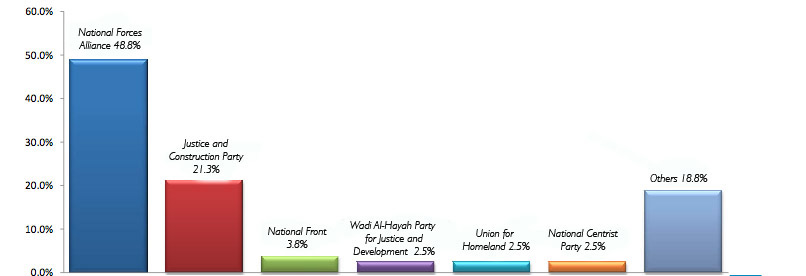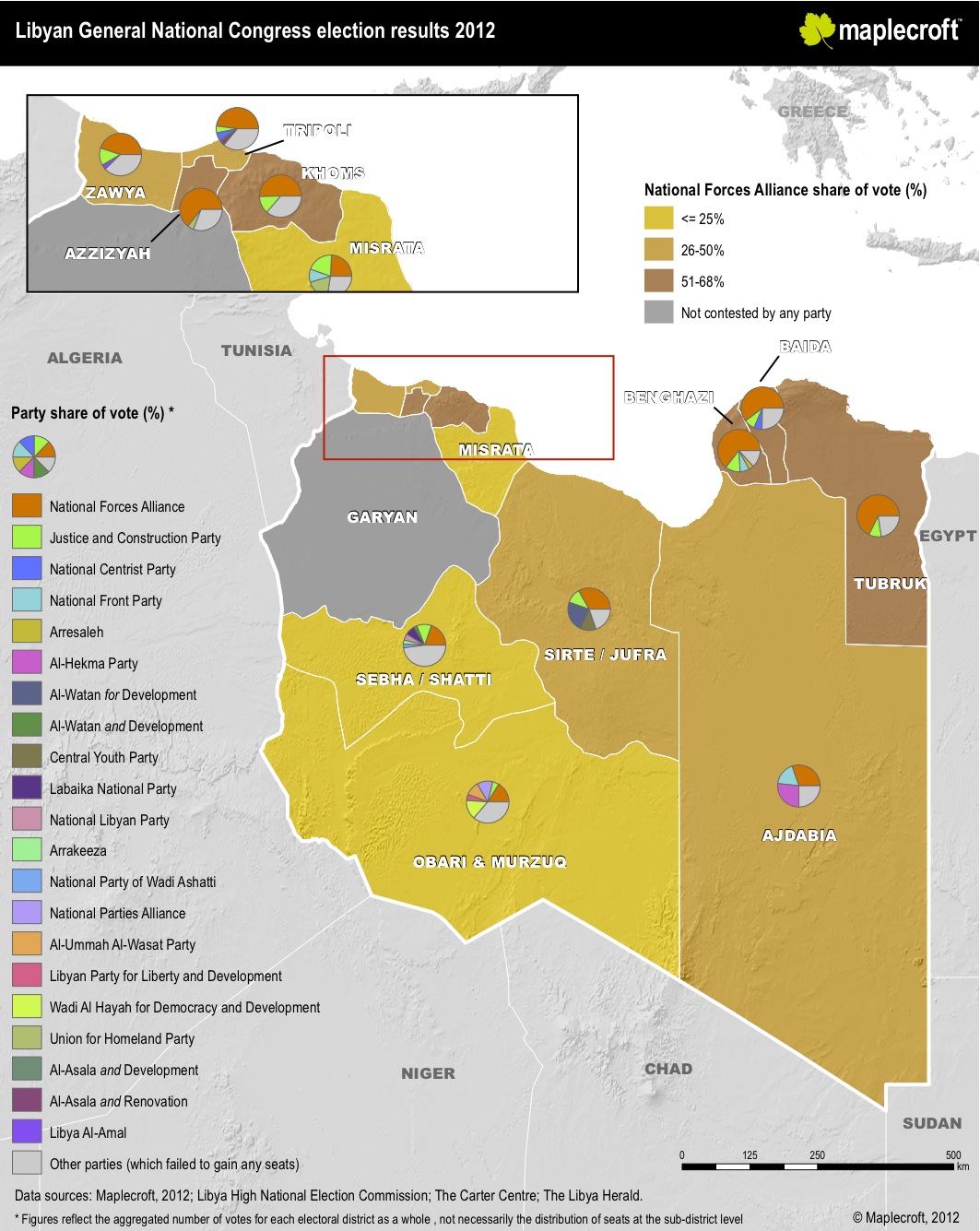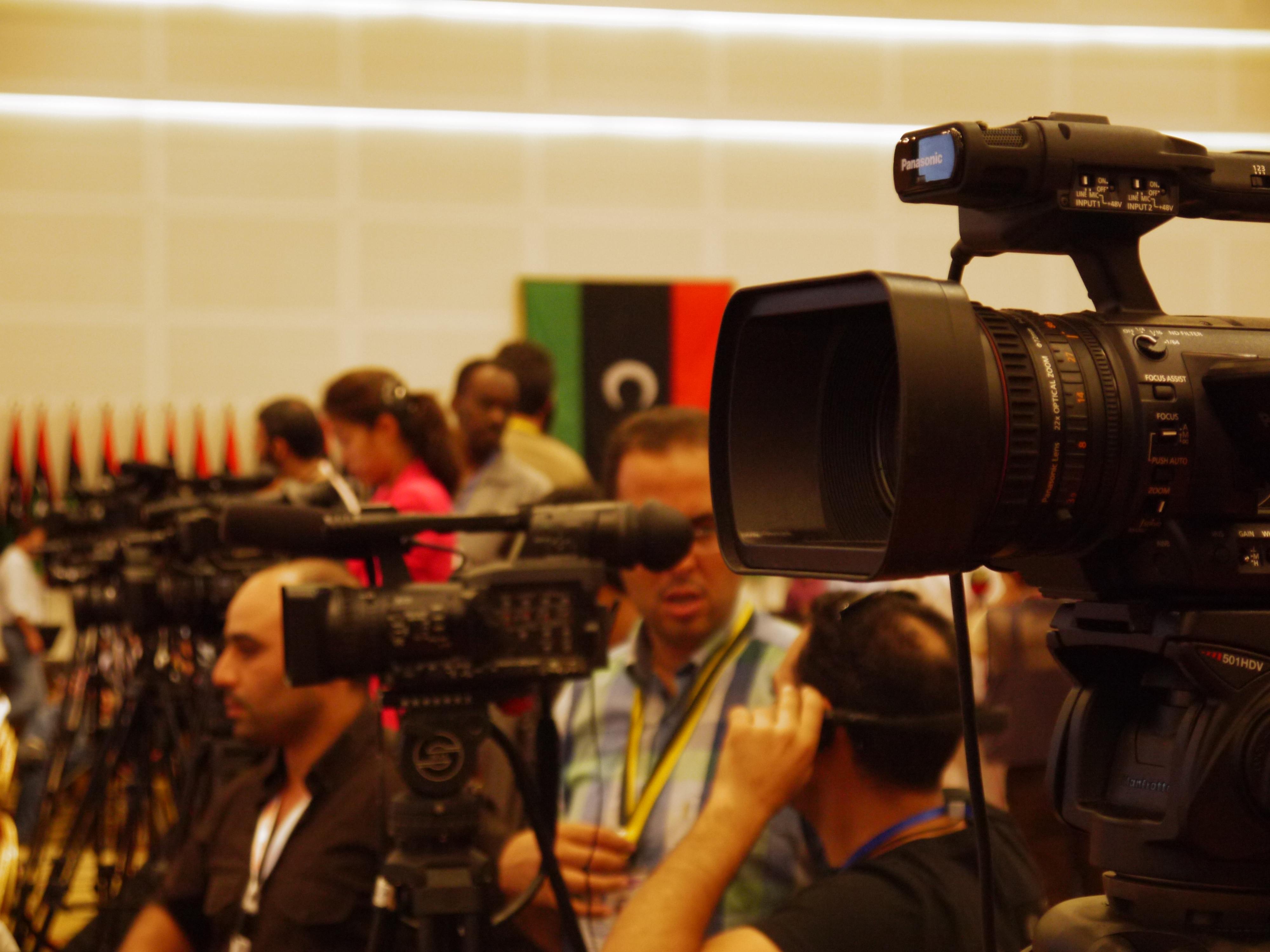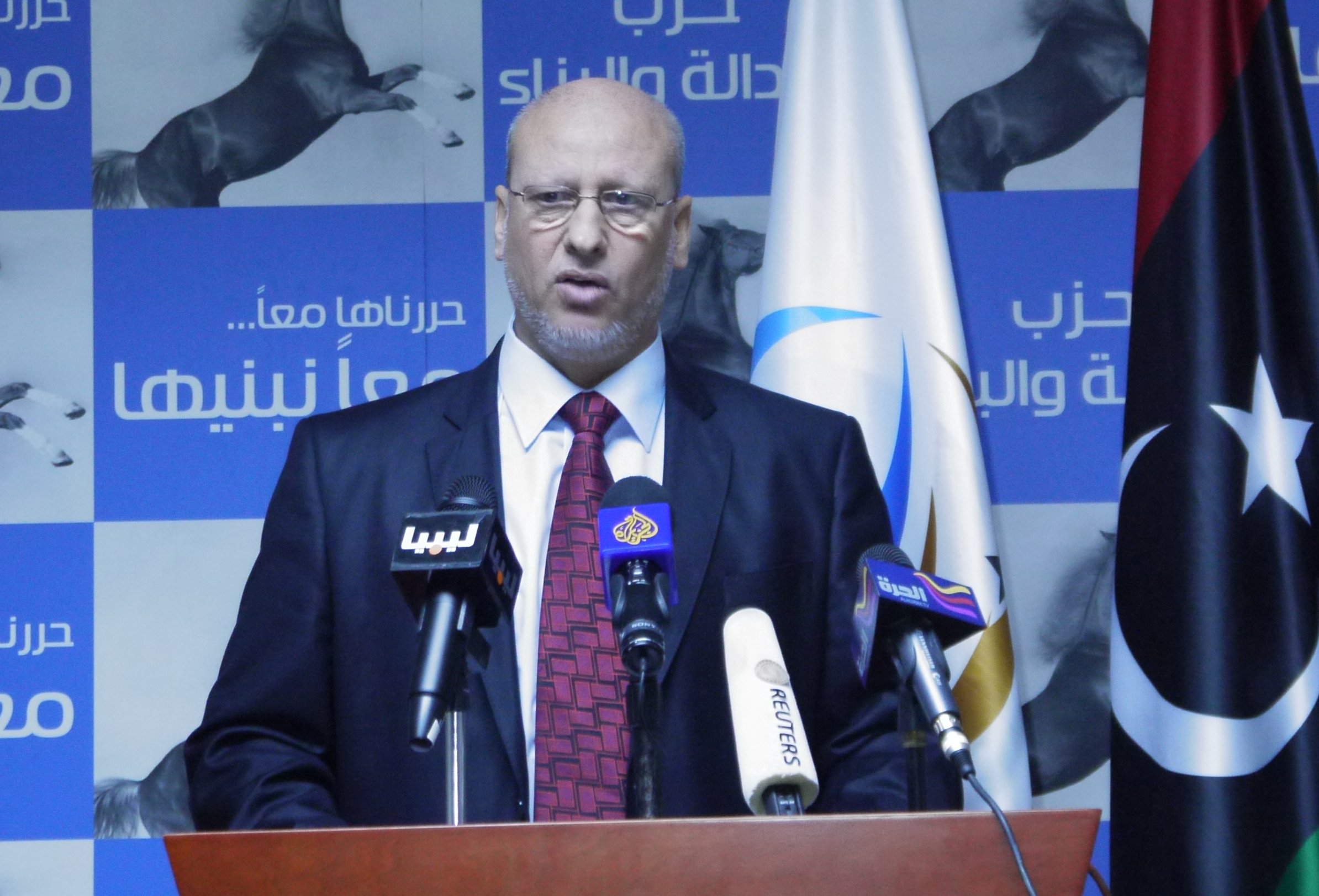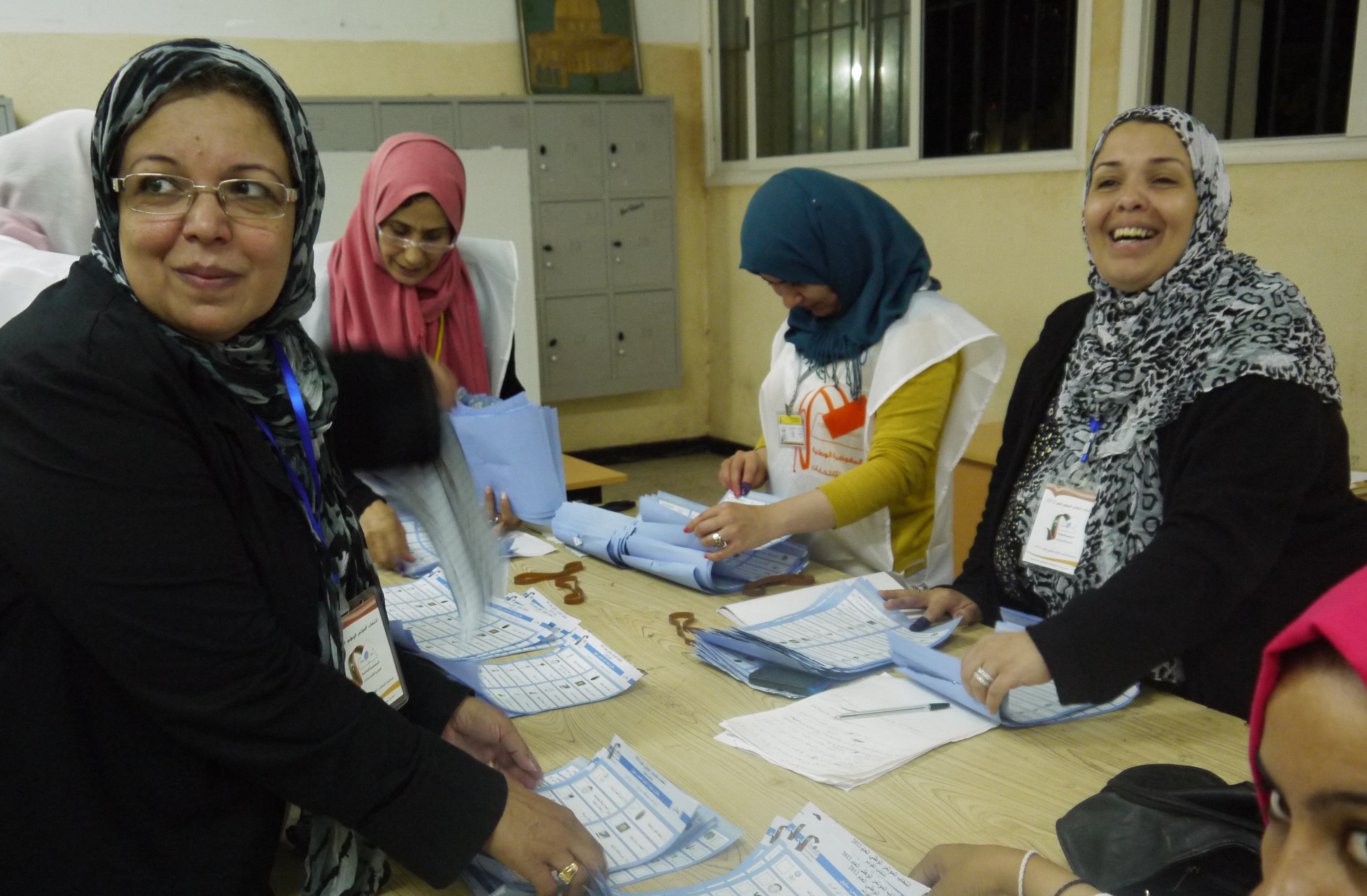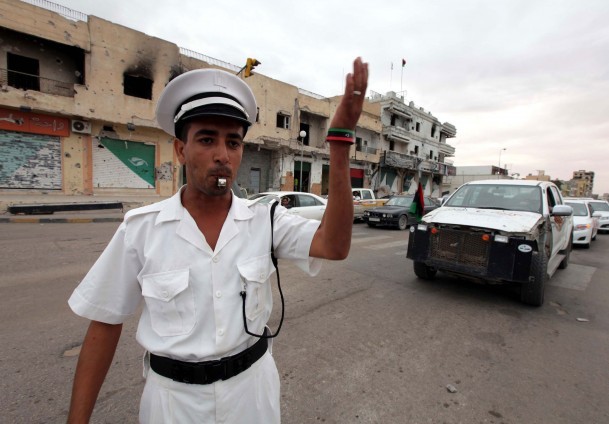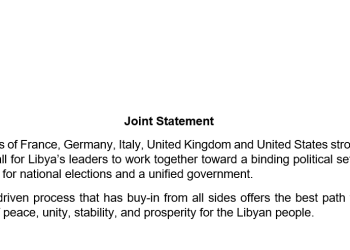Tripoli, 17 July:
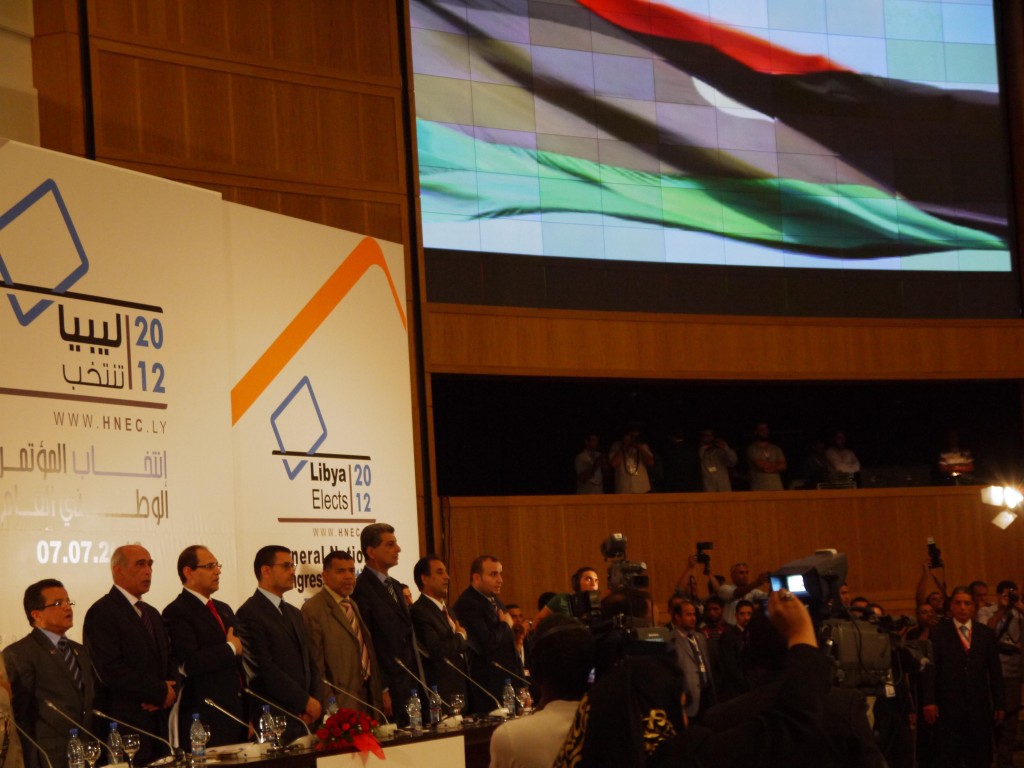
Mahmoud Jibril’s National Forces Alliance has swept aside its competitors in Libya’s first national elections in almost five decades, having . . .[restrict]received almost as many votes as all other 130 parties combined.
The NFA took 39 of the 80 seats available to political parties in the 200-seat National Congress, more than double the 17 seats won by its nearest rival, the Muslim Brotherhood’s Justice & Construction Party.
In a surprise development, the Nation Party, which counts Abdul Hakim Belhaj amongst its members, failed to win a single seat.
Other parties that secured their place in the Congress this evening include Mohammed Magarief’s National Front, which took three seats, and Ali Tarhouni’s National Centrist Party, which took two. Tarhouni, who serverd as interim oil minister during the revolution, is known to be close with Jibril and his party is expected to ally itself with the NFA.
The Union for Homeland also took two seats, as did the little known Wadi Al-Hayah Party for Justice and Development. Fifteen other parties took one apiece.
The result represents a significant break with recent trends in post-Arab Spring North Africa, where Muslim Brotherhood-backed parties have taken power in Egypt and Tunisia.
“This is the greatest day of our lives”, said the HNEC’s Rashid Maihub, who was responsible for registering the more-than 3,700 candidates before the elections. “After 42 years of oppression we’ve finally been able to make it”.
With just 40 per cent of the seats on the Congress reserved for parties, however, the true kingmakers of this election may still be the 120 individual candidates, with Justice & Construction’s Mohammed Sawan insisting that many are supporters of his party.
The coming days and weeks are now set to be dominated by political horse trading in the world’s newest democracy, as the various competing factions vie to secure an overall majority and form a government.
Having taken place just nine months on from last year’s revolution, the elections have been widely hailed as an extraordinary achievement.
In spite of disruptions by a minority of voters on election day, the vast majority of Libyans were able to cast their ballots, with national and international observers alike verifying the elections to have been free and fair.
Although the overall makeup of the Congress now looks set, changes are still possible with candidates now having two weeks to appeal the results if they so choose.
A fuller breakdown of the election results will be published shortly. [/restrict]


